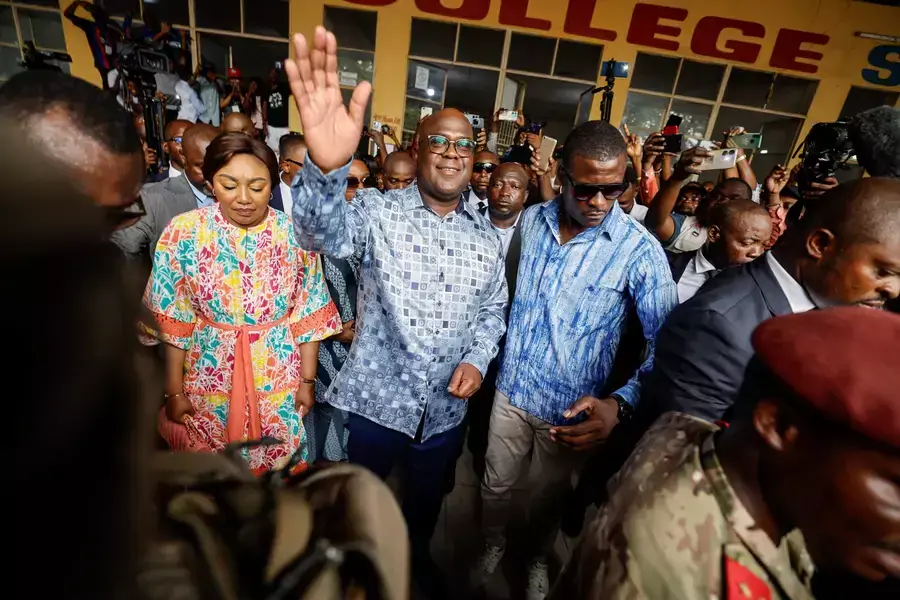History Breeds Skepticism in the DRC’s Electoral Results

December’s general elections in the Democratic Republic of Congo unfolded as many had predicted. Election day was so chaotic that it stretched into election days, irregularities abounded, the opposition and observer groups cried foul, and incumbent President Felix Tshisekedi was preliminarily declared the winner (the Constitutional Court is expected to confirm this result on January 10). It is customary to congratulate other countries on the conduct of elections. But with over a billion dollars devoted to such a deeply flawed process, Congolese citizens don’t have much to celebrate.
With the opposition divided among multiple candidates, Tshisekedi’s victory certainly seems plausible, and even likely. But those dissatisfied with the electoral results have real grievances to support their complaints. From illegible voters’ cards to missing equipment to outright intimidation, a great deal went wrong. Over five thousand incidents were reported to observers representing the Catholic and Protestant churches while the polls were open. Another civil society group, Symocel, found that that agents of the electoral commission mishandled sensitive materials and failed to provide for a transparent tabulation process. The shambolic process only provided fuel for those who believe that the outcome was fixed.
More on:
History supplies even more such fuel. Tshisekedi originally came to power in 2019 as a result of a backroom deal with his predecessor and despite hard evidence indicating that a different candidate received the most votes. Foreign powers, including the United States, went along with the charade in the hopes of avoiding even more instability in an already fragile state. At this point, trust in electoral institutions is understandably in very short supply. When there is no reason to have confidence in electoral authorities, the “real” winner is in the eye of any individual beholder. For those who did not support the president’s re-election, the notion that they are stakeholders in a system that holds him and his government accountable for their actions sounds like a fantasy.
How does a country with so many urgent problems move forward when the legitimacy of its political leadership continues to be an open question for so many? The country’s compromised judiciary is unlikely to deliver any real means of redress for those complaining about irregularities, and authorities have indicated that attempts to address political grievances via protest will be quashed forcefully. Rather than strengthening the bond between citizens’ demands and the governance on offer, the hangover from 2019 and the latest polling leave the country mired in mistrust and adds still more tarnish to the brand of democracy in the region. For a country of more than 110 million people, with natural resources so critical to the rest of the world’s future, it’s a painful missed opportunity.
More on:
 Online Store
Online Store